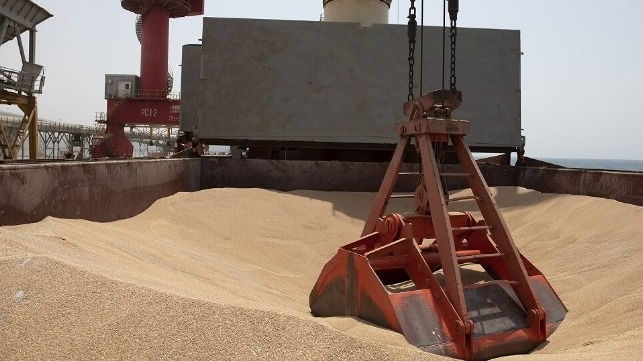Black Sea Grain Corridor Moves 1.5M Tonnes of Food in its First Month

The first vessel chartered by the UN World Food Program to carry food aid from Ukraine since the start of the Russian invasion has arrived at its destination. The bulker Brave Commander berthed at the port of Djibouti on Tuesday, delivering 23,000 tonnes of wheat for consumers in Ethiopia - one small but important part of the 1.5 million tonnes of grain shipped from Ukraine using the new Black Sea corridor.
The Ukrainian government has prioritized shipment of humanitarian cargoes, speeding up the loading operations for food aid vessels. Two have taken on cargoes in the Odesa region so far - one vessel for Yemen and one for Ethiopia - and have departed using the designated safe corridor through the Black Sea.
"We ensure the fastest and most efficient process of receiving, loading and sending these vessels. Such transportation is an undeniable priority for us," said Ukrainian Infrastructure Minister Oleksandr Kubrakov. "We continue to work with the UN World Food Program to increase the amount of food aid. I am grateful to our partners for their cooperation."
The second UN food aid vessel, the bulker Karteria, loaded at Pivdennyi on Tuesday and got under way, bound for Yemen with 38,000 tonnes of wheat. She was one of six vessels outbound from Ukraine on the transit corridor Tuesday.
In the first month of the Black Sea transit deal's operation, 61 vessels and 1.5 million tonnes of agricultural products have departed Ukraine. This puts a significant dent in the 20 million tonne stockpile that Ukraine had on hand at the time of the Russian invasion and naval blockade in February - though Ukraine and the UN would both like to see much more vessel traffic.
“The world cannot afford to have food and fertilizer held up by anything. Every shipment cleared through this route helps to calm markets, boost food supplies and keep farmers producing," said UN Coordinator for the Black Sea Grain Initiative Amir Abdulla on Saturday.
